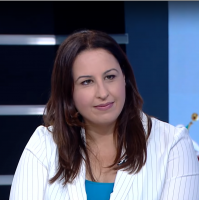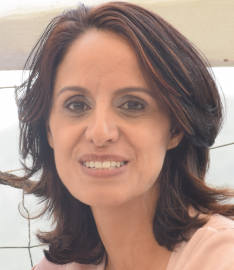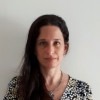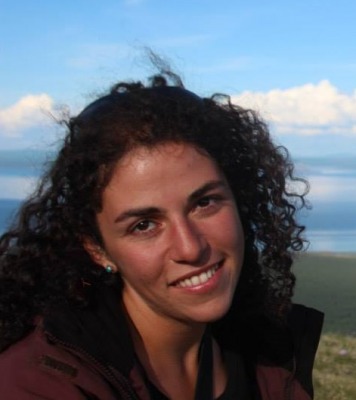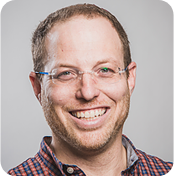2022-2023 Academic Year

Tchelet Liby Tutman
Title: How to Educate for Peace? Various Pedagogical Methods in Educational Activities for Israeli and Palestinian Youth in Peace Education Organizations
Supervisor: Aviv Cohen, Ph.D.
Associate Professor
Abstract: This work examines the challenges and opportunities in transforming the educational ideology of encounters into a pedagogical system. The central claim of this research is that genuine change in the conflict can be achieved through education, involving reflection facilitated by organizations not only regarding content but also how it is conveyed in peace education organizations engaged with Jewish and Palestinian youth in Israel. In recent years, studies have started to explore the socio-political perspectives of youth in peace and war, as well as educational programs for peace, forming the theoretical basis for this work. The research spanned a year and included semi-structured interviews, observations, collection and analysis of program details, protocols, outputs, and additional materials of the organizations. The research focuses on pedagogy as an educational method influenced by various parameters, including ideology, educators, and target audience. A comparative analysis of different pedagogies used by peace education organizations will be conducted.

Christopher Eglinton
Title:
Supervisor:
Abstract:
2021-2022 Academic Year

Hiba Rabadi
Title: Identity dilemmas, experiences and feelings of the Palestinian female students from East Jerusalem during their integration process in the Hebrew University.
Supervisor: Prof. Ifat Maoz
Abstract: This study will examine the dilemmas, experiences and feelings that arise among young Palestinian female students from East Jerusalem during their integration into the Hebrew University. The study will be conducted using a qualitative method, based on structured in-depth interviews with eight young Palestinian women from East studying Jerusalem at the Hebrew University. The aim of the study is to promote an understanding of the identity dilemmas, experiences and feelings of the young Palestinian female students from East Jerusalem who on the one hand do not know the Israeli society so well and want to preserve their Palestinian values and culture, and on the other hand, want to integrate with the Israeli society and be accepted by it without experiencing discrimination.
Roy Katz
Title: A smile with teeth: a discourse of hate against American vice-president Kamala Harris
Supervisor: Prof. Tsfira Grebelsky Lichtman
Abstract: Hate discourse in social media has increased worldwide. The essence of hate discourse reflects expressions of prejudice, primarily of racism and sexism. This study aims to analyze hate-discourse in social-media toward US Vice-President Kamala Harris by the Facebook page followers of American radio and TV presenter Sean Hannity. Grounded on the theoretical framework of intersectionality and role congruity theory, a thematic analysis was conducted in March–April 2021, during the first 100 days of the Biden Administration. The findings revealed four main themes of hate-discourse, which were aggregated into an innovative theoretical framework of the interplay effect of thematic features of race and gender on hate-discourse. This study contributes theoretical explanations for overt brutal hate-discourse on social-media toward Kamala Harris, in addition to novel expressions of online implicit prejudice of multilayered hate-discourse. Finally, the study presents the implications of a new leadership style of intersectionality on contemporary female politicians.
Shlomit Laub
Title: Perceptions, feelings, attitudes, and experiences of young women from the Shomron hills who built their homes there.
Supervisor: Dr. Yuval Benziman
Abstract: This study aims to understand the feelings, experiences, dilemmas, challenges, and attitudes of "girls of the hills", young religious women who grew up in the Shomron hills and built their homes there. The research will be qualitative, based on semi-structured in-depth interviews with 10 young women. The goal of the study is to provide a more comprehensive picture of the phenomenon and of their lives and worldview through the voices of the young women themselves.
Shaina Silberstein
Title: The Identity Journey of North American Chabad Women After Aliyah
Supervisor: Prof. Ifat Maoz
Abstract: While Olim (Jewish immigrants) from North America continue to arrive in Israel, many of them face challenges in adjusting to life in Israel and finding their place in Israeli society. Previous studies have explored the motivations for Aliyah for North Americans and the challenges they face in adjusting to a new culture (Rodin, et al., n.d.; Amit & Riss, 2014). Immigration research has indicated that being far from the familiarities of home often leads to lifestyle changes and the development of multiple identities (Miller-Perrin & Thompson, 2010; Verkuyten, et al., 2019). However, when it comes to North American immigrants to Israel, who immigrate primarily for ideological reasons, they do not always feel the need to make the changes necessary to integrate into the new culture and society that surrounds them, leading to a relatively high percentage of remigration within just a few years (Portner, 2013). Female Olim may find it particularly challenging to integrate into the Israeli workforce (Rebhun, 2008) and find a sense of social belonging, while those from closed communities such as Chabad are faced with unique challenges of their own as they are exposed to a broader range of religious backgrounds in their newly expanded social circles. The present study will follow the unique Aliyah experience of Chabad women, as they journey through finding their identity both culturally and religiously following their move to Israel. This research is significant as this population has not yet been researched in the context of North American Aliyah in particular, nor with relation to immigration to Israel in general. In addition, this study is of personal interest to the researcher, who underwent a similar life journey following her move from North America to Israel as a young Chabad woman, and sought to discover the challenges, experiences, dilemmas, and conflicts of others who made this life-changing move across the world.
Aliza Gold
Title: Experiences, feelings, and dilemmas in the daily lives of Palestinian civilians living in the Old City of Jerusalem under Israeli security and surveillance.
Supervisor: Prof. Yuval Benziman
Abstract: This study will try to understand the experiences, feelings, and dilemmas in the daily lives of Palestinian civilians living in the old City of Jerusalem under Israeli security and surveillance. As a qualitative study, data collection will be carried out through 15 to 20 semi-structured in-depth interviews and grounded theory will be used for data analysis. The aim of the study is to add to the existing knowledge surrounding the lives of Palestinians in East Jerusalem, with special regard to the unique contextualities of the Old City that differentiate it from other areas of East Jerusalem and impact security measures, such as: the spatial layout, inter- and intra- group relations, religious sites, heritage tourism. The study brings forth the voices of those Palestinians living in the Old City and sheds light on their perspectives and experiences.
2020-2021 Academic Year
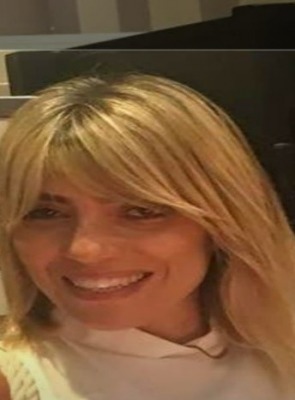
Orit Ben Dor
Title: Teaching during the Covid 19 pandemic as teaching in crisis - verbal and non-verbal aspects of teaching through computer mediated communication (cmc).
Supervisor: Prof. Tsfira Grebelsky Lichtman
Abstract: This study will try to understand the emotions, experiences, dilemmas, difficulties and perceptions of high school teachers regarding verbal and non-verbal communication aspects of teaching during the Covid pandemic. The study will be conducted using a qualitative method, based on semi-structured in-depth interviews with eight high school teachers. The aim of the study is to produce a model that maps the difficulties of teaching by means of computer mediated communication and suggest ways of dealing with these difficulties while relating to the following aspects of verbal and non-verbal communication: proximity, kinesis, sound qualities and appearance.
Einat Levi
Title: Jewish revival and recognition in Morocco – the case study of Essaouira
Supervisors: Prof. Eli Podeh and Dr. David Guedj
Abstract: The trend of Jewish recognition and renewal in Morocco and in other Arab countries can be seen after a long period of estrangement following the Israeli Arab / Palestinian conflict and the establishment of the State of Israel. It seems that although the number of Jews in the Arab countries is declining, the Jewish heritage has been recognized and re-established in recent years. This study will examine the causes, circumstances and manifestations of the Jewish recognition and renewal in Morocco, focusing on the case study of the city of Essaouira. The return of Judaism to Morocco and to the Arab world is an indication of deeper changes that are taking place in the region and one of them is the rise of multiculturalism. Hopefully, this study will contribute to a better understanding of this phenomenon in Essaouira and Morocco as well as in other places in the MENA region
Sigal Kanotopsky
Supervisor: Prof. Eran Halperin
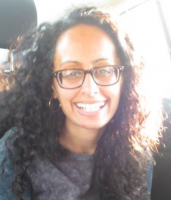
Chamutal Levin
Title: Dilemas, positions, themes, expreiences, emotions and conflicts experienced by Habad females pursuing non-teaching degrees in secular higher education institutions
Supervisor: Prof. Ifat Maoz
Abstract: The goals of the study are to examine the dilemmas, positions, themes, experiences, emotions and conflicts experienced by Habad females pursuing non-teaching degrees in secular higher education institutions. The study was carried out through in-depth interviews of seven Habad females and Grounded theory was used to analyze data and define themes. Our findings reveal the dilemmas and inner conflicts experienced by the interviewed Habad women during the course of their studies in secular academic institutions.
Michal Dahan
Title: First generation to higher-education and success in Israel: women from Mizrachi origins that have reached managment positions at the Hebrew University
Supervisor: Prof. Ifat Maoz
Abstract: Studies addressing the association between social status and higher education show that there is a correlation between a person’s level of education and their cultural, social and economic background characteristics. In this regard, an individual coming from a high socio-economic class has better chances of acquiring higher education than one from a lower socio-economic background (Bourdieu, 1977; Dahan, 2003). The current study corresponds with and adds to previous studies which have revealed that under certain conditions, first-generation higher education students, despite many obstacles and difficulties, were able to “break through the barrier” and acquire higher education (Davids, 2010; Gofen, 2009).
In contrast to previous studies (Davids, 2010; Goffen, 2008; London, 1989) that examined students during their studies or after graduation, this study focuses on the subgroup of Jewish-Israeli women of Mizrahi origin in management positions at the Hebrew University of Jerusalem, all first-generation recipients of higher education. Decades after graduating their academic studies, they look retrospectively at their lives in general and their educational experience in particular. In addition, they examine their educational experience and the decisions made by their parents and themselves, from their current perspective as women with established and successful careers.
Previous studies have dealt with women in academia in the Israeli context (for example, Hertz and Opletka, 2009; Toren, 2008) and a small number of studies dealt with women in management positions in the Israeli academia (for example, Yassour-Borocowitz, Desivilya and Palgi, 2010). The current study opens a window to an unexplored topic and provides a glimpse into the world of nine Jewish-Israeli women of Mizrahi origin, managers at the Hebrew University - all first-generation recipients of higher education who hold administrative management positions at the Hebrew University. Through a thematic content analysis, based on in-depth interviews, I aim to reveal these women’s personal motivations to succeed, break the intergenerational circle and reach senior influential positions.
Moran Cohen
Title: Distance learning during the Corona crisis- verbal and non-verbal aspects
Supervisor: Prof. Tzfira Grebelsky-Lichtman
Abstract: This study will try to understand what the feelings, emotions and experiences of students in Israel are, while dealing with the communicative aspects (verbal and non-verbal) of the transition to distance learning due to the corona crisis.
The research will be conducted in a qualitative method, using semi-structured in-depth interviews for 8 high school students. The aim of the study is to examine the role of non-verbal communication in all its aspects (proximity, kinesis, sound qualities and appearance) in the relationship between students and teachers and between students and their classmates, and to investigate its impact precisely among adolescents, who are at a significant stage in terms of their development on the personal, social, emotional and cognitive level.
Revital Windzberg Barsheshet
Title: This Is It - Facets Of The Israeli Society, During The Covid Pandemic, As Portrayed In The Israeli Satire Program 'Zehu Ze!'
Supervisor: Dr. Yuval Benziman
Abstract: This thesis will attempt to study the ways in which the nostalgic Israeli satire program 'zehu ze' represents narratives, perceptions, feelings and attitudes regarding everyday life in Israel during the Covid pandemic. This Satire tells a story of nostalgia, of Israeli society’s longing for what was supposedly mainstream and consensual just a few decades ago, while mocking and challenging the current situation of Israeli society and its many inner-conflicts.
Dominik Winkler
Title: The Global Political Economy of “the refugee” and the double boundary of the Mediterranean Sea
Supervisor: Dr. Tobias Ebbrecht-Hartmann
Abstract: Within the last decades, refugees crossing the Mediterranean towards Europe gained more attention within the European discourse. Thereby the Mediterranean became a central point of reference for the discourse around migration, symbolizing the European border and the failure of the self-declared principles of the European Union. However little attention has been put at the role of the Mediterranean as a border shaping and limiting the European representation of refugees.
In my research, I will investigate the role of the Mediterranean for the representation of migration and for the European self-understanding. I will follow a dialectical understanding of the Mediterranean as a material and discursive border. In other words, I will analyse how Mediterranean not only constitutes a material border blocking migrants from entering the EU, but is also shaping the inner-European understanding of flight itself, veiling the impact of European policies in the Global South and European-caused reasons for flight.
This research is examined by critically re-drafting the European discourse on the Mediterranean through qualitatively investigating major moments, images and representations, and connecting them to the following theoretical framework.
On the one hand, I will relate to the work of Raewyn W. Connell and Walter D. Mignolo, who conceptualized the role of spatial differences following colonialism within the production of knowledge. On the other hand, I will rely on critical theory, mainly Nancy Fraser and Rahel Jaeggi, who connect political economic structures with a societies culture and the theme of alienation. Through merging both approaches at the case study of the Mediterranean, I argue that the Sea itself illustrates the dialectical role that a Global “Political Economy of knowledge” (Žižek 2017) plays - on the material basis creating the causes for flight, on the discursive level producing distinctive knowledge about refugees, mainly as humanitarian, de-politicised victims.
Following this theoretical work, I will return to the refugees role of disrupting the European border, both materially through crossing the Mediterranean, and discursively, as their mere presence as refugees brings the devastating impact of European Neo-Colonial policies on the European side of the border. This epistemological break, I argue creates a situation of insecurity for the European construction of the self, which is based on the double-functioning of the border. This approach not only provides an alternative explanation for the rise of populist movements across Europe. It also creates a framework for reformulating the European self-understanding and creating a counter-hegemony to the dominant neoliberal hegemony of the European “self” (Mouffe 2000).
2019-2020 Academic Year
Yifat Mansbach
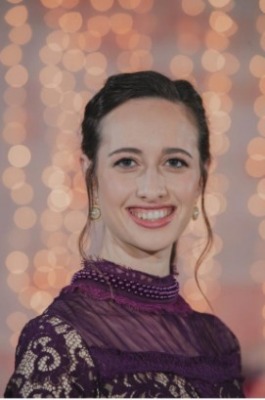
Title: Religion and conflict resolution - a platform for a special opportunity or an obstacle to progress towards peace? Beliefs, stances and challenges of Orthodox Jews and Jewesses active in the field of conflict resolution
Supervisor: Dr. Yuval Benziman
Abstract: It is difficult to ignore the fact that religion is an important factor influencing and designing private and public life, and therefore it is plausible to suggest that religious beliefs play a role in the development and changes within conflicts. This, despite the fact that conflicts arise and develop in light of the meanings and interpretations that people attribute to different situations. That is, people are activists and join in interpreting an experience as a conflict, based on a reservoir of their personal knowledge and beliefs )Lederach, 1996.( Accordingly, there is a rising phenomenon, academic and actual, which touches on the importance of understanding the danger, the strength and the place of organized religious life (Hertog, 2010).
Within this framework, the subject of research for this thesis questions whether the connection between religion, particularly the Jewish religion, and conflict resolution, serves as a platform for a special opportunity or, to the contrary, is an obstacle to progress towards peace and conflict resolution. The questions asked will center on the beliefs and stances, as well as the challenges, of Orthodox Jews and Jewesses active in this field.
Based on in-depth interviews and through a Grounded-theory-based qualitative analysis, the research will attempt to study the connection from the standpoint of religious leaders who initiate meetings and dialogues, and actively take part in discussion on the subject of "conflict resolution," as connected to the Israeli-Palestinian conflict and the tension between religious and secular in the State of Israel.
The research examines, empirically and critically, the literature on the subject of religious conflict resolution. As such, the research will examine if the language used in the discipline of "conflict resolution" to describe the nature of conflicts and their resolutions, can be translated to a religious language in a manner that gives expression to the motivation, the aspirations and the religious hopes to end the conflict; or alternately, does the religious language lead to a different perspective and is, in fact, in competition with the "Western" language of conflict resolution. This fine point may present a more complicated picture of the various models of conflict resolution and of the meaning of the expressions "religious conflict resolution," and "religious peace-making" in connection with Judaism and in general. The attempt to connect the perspectives of the place of religion in the life of those who deal with conflict resolution is important, as it seeks to discover how the personal motives that are connected to religious beliefs, can contribute to the dialogue, lessen the conflict and develop a model for the solution of challenges.
Daniel Barcesat
Title: Perceptions, feelings, dilemmas, and challenges that parliamentary advisers are facing during their role at the Knesset.
Supervisor: Prof. Ifat Maoz
Abstract: The parliamentary adviser is considered one of the most coveted and interesting positions in the political arena. Although several articles have been written about their role, extensive research on this group remains largely absent from the literature. Many studies done in the parliamentary arena have focused on elected politicians as the subject of research, but have not focused on their advisers, whose work largely remains unseen and does not receive credit from the public.
Pegan (2017), Busby and Belckacem (2013) each addressed the nature and content of the role of the parliamentary adviser in the EU Parliament arena.
But are these publications accurate and equivalent to the role of the adviser in the Israeli Knesset?
This research focuses on the Israeli arena and the parliamentary advisers working in the Knesset. It examines how consultants perceive their roles, the challenges they face during their job, and how they cope with them. Are they exposed to moral and professional dilemmas and how do they choose to deal with these complex situations?
The research question is examined through an in-depth qualitative content analysis of interviews that I conducted with ten male and female parliamentary advisers. This study is an opportunity to tell the story of the advisers from their perspective, which illuminates the extent of their influence on the way the Members of Knesset behave in the political parliamentary arena, and sheds light on their place and role in the democratic process taking place in the country.
This study exposes the heart of political parliamentary action, which affects all citizens directly and indirectly. It presents us with an untold story that reveals new layers that remain hidden to the eye and that so far have not been adequately expressed in the literature. The study removes the prestigious and mysterious status that the parliamentary adviser has been given by the public, giving us a glimpse into the daily reality of the consultants and the complexity of their role.
2018-2019 Academic Year
Clementine Haddad-Levy
Title: The treatment of conflictual historical subject in Israeli social media - the page of "History Lovers" as case study
Supervisor: Dr. Yuval Benziman
Abstract: Conflict-related beliefs and conceptions are omnipresent in societies involved in intractable conflicts (Bar-Tal, 2013). Israel is no exception, and one can find endless stages where such beliefs are visible, especially considering the fact that in Israel using social media as a platform for political debate is deemed legitimate - (Mor, Kligler-Vilenchik, & Maoz, 2015).
The present study focuses on the "History Lovers" public Facebook group, a popular group including around 230,000 members and open to all, regardless of gender, age, ethnicity or political beliefs, a fact reflected in its diversified contents. Through a Grounded-theory-based qualitative analysis of relevant posts and comments, this study seeks to identify and examine salient themes emerging in public debating of history happening online. Whereas existing academic literature has focused on the role of history textbooks in the shaping of collective memory (Podeh, 2000), this research looks to expand previous research to the newer stage of social media, by looking into its contribution to the perpetuation of a consensual reality in accordance with the national narrative.
Preliminary results have so far shown three emerging themes: belief in self-victimhood and praise of self-sacrifice are ubiquitous, biases related to the in-group and out-group -that are described as positive and negative, respectively - are commonly expressed, and patriotism-Zionism and criticism are repeatedly deemed incompatible. Beside these -somewhat straightforward- findings, the full results will be carefully examined in order to identify less apparent, but no less interesting, patterns.
Eyal Isman
Title: Themes, perceptions and patterns of expressions, regarding the Israeli ultra-orthodox community, as reflected in talkbacks on Ynet
Supervisor: Prof. Ifat Maoz
Abstract: The main objective of the present study is to examine the nature of the themes, perceptions and patterns of expressions regarding the Israeli ultra-Orthodox community, as reflected in talkbacks on the Ynet website; a highly popular online news & media platform in Israel.
The themes, perceptions and patterns of expressions of the talkback writers towards the ultra-Orthodox community were identified by analyzing the thematic content of the talkbacks. The study includes 3,084 responses to four articles that were sampled in two separate periods during the year 2018. The findings reveal six main themes. The findings suggest that uncivil discourse identified in previous studies in the context of the right wing-left wing political rift in Israel (Harel, 2018; Dori-Hacohen & Shavit, 2013), may also characterize the talkbacks discourse in the context of the schism between the secular and the ultra-Orthodox community in Israel.
In addition, the findings indicate that the use of uncivil patterns of expression as a tool for constructing ingroup identity and boundaries – that was identified in the context of the right-wing-left wing rift in Israel - might be also relevant in the context of the schism between the secular and ultra-Orthodox communities in Israel.
The themes and the patterns of expressions identified in this study are also consistent with the rhetorical strategies recognized in previous research literature as strategies aimed at structuring outgroup de-legitimization (Bar-Tal & Hammack, 2012).
2017-2018 Academic Year
Lee Aldar
Title: Diplomatic Dramas and Redressive Actions
Supervisor: Professor Zohar Kampf
Abstract: Previous research in IR has dealt with the question of how states overcome periods of heightened international tension without resulting to war. Yet, with some exceptions found in the study of diplomacy (Bjola 2010; Adler-Nissen, 2012; Kampf and Löwenheim, 2012), the social and linguistic elements of interstate interactions have generally been overlooked. This paper aims to contribute to a growing body of scholarship that emphasizes the social construction of world politics and considers the existence of a “society of states” (Bull, 1977; Buzan, 1933), by examining the role played by public redressive actions in “international dramas”. This term is based on Victor Turner’s concept of “social drama” – a social process arising in conflict situations (Turner, 1957) – and is applied for the first time to interstate processes in the diplomatic sphere.
States’ actions in the escalation and redressive stages of 35 international dramas involving Israel as a state actor are analyzed and accounted for. The theoretical framework of this paper applies interpersonal communication theories to relations between states, and the analysis brings concepts such as redressive action (Turner, 1957; Goffman, 1967), framing (Goffman, 1974) and image repair (Benoit, 1995) into the world of international relations in an attempt to uncover the rationale behind common diplomatic practices through which the international order is both challenged and restored. The data reveals four primary discursive strategies used in the redressive stage of international dramas: reframing, appeasement, remorse, and relationship enhancement. The findings suggest that verbal actions that are often dismissed in IR as “cheap talk” in fact play an inseparable part in most de-escalatory processes, and demonstrate how social theories can add to our understanding of interstate relations.
Carolina Frimer
Title: The people, the land and the law: Israeli Religious Zionists in Dialogue Groups with Palestinians
Supervisor: Prof. Ifat Maoz and Dr. Yiftach Ron
Abstract: In ethnopolitical conflicts, such as the Israeli-Palestinian, collective narratives and identities are as relevant for its understanding as material resources such as land disputes. The present study proposes a deeper understanding on how specific ideological and social backgrounds contribute to perception changes during dialogue encounters, raising themes and dilemmas of engaging the Religious Zionist community in dialogue with Palestinians.The main question this study addresses is: What are the themes and dilemmas raised by Religious Zionists about their experiences in participating in dialogue meetings with Palestinians?Academic literature suggests that religiousness has cognitive implications and that intergroup contact is related to a more moderate attitude. My research seeks to understand the specificities of religious people engaging in intergroup contact and how they process perception changes that occur in the process. It is an important step considering that people and values related to dialogue groups are predominantly secular .
Tal Harel
Title: Psychological characteristics of polarized political discourse on an Israeli social media platform
Supervisor: Prof. Ifat Maoz
Abstract: The political discourse between rightists and leftists in Israel has become, along the years, conflictual, offensive and disrespectful (Peleg, 2010). This is particularly true for the Israeli online platform, where the discourse between individuals from opposing ends of the political spectrum can be described as a 'bashing ritual' (Dori-Hacohen & Shavit, 2013). The present study seeks to characterize extreme right-wing political discourse as it appears on "The Shadow" Facebook page; a highly popular page with more than 340,000 followers, which is associated with a rightist agenda and functions as a platform for heated political discussions. The study examines the perceptions of "The Shadow" followers regarding the Israeli left-wing through a qualitative analysis of the comments posted on his page. This analysis reveals patterns within the usage of slurs, insults and aggressiveness, directed toward the left-wing and its supporters. The academic literature commonly attributes this kind of discourse to the online platform where incivility in political discussion is prevalent (Coe, Kenski & Rains, 2014) and, in the local context, to the Israeli 'Kasach' discourse culture (Dori-Hacohen & Shavit, 2013). Alongside these arguments, the findings of the current study indicate that psychological characteristics of a polarized society living in an intractable conflict might have an interpretative value when trying to understand the nature of the discourse on the page; the left wing is regarded as a scapegoat, as naïve and blind to the reality, eventually even being pushed out of the 'Jewish Israeli' ingroup and becomes a target for violence.
Michal Kostiner
Title: Civic Education in Ultra-Orthodox Jewish Schools in Israel
Supervisor: Dr. Aviv Cohen, School of Education
Abstract: This study focuses on the special case of civic education in ultra-Orthodox Jewish schools in Israel. Due to the fact that the Independent Education System in Israel (ultra-Orthodox Jewish schools) is the only segment that is excluded from the "unified" civic-education curriculum, I saw it as rare opportunity to reveal the non-mediated stand of ultra-Orthodox Jews, toward the state and some of the main, high profile, conflicts. I found it intriguing that technical-non-essential reasons, brought that separatist religious group to participate in the formal "Bagrut" exams made by the ministry of education. Out of this compulsion they must teach content that many times clashes with the most basic concepts in their world view. the question that lead my study is what perceptions, themes, and images arise from the civics curriculum in the ultra-Orthodox Jewish sector toward the State of Israel, citizenship and democracy? I chose Grounded-Theory methods that driven from the Qualitative research, The examination focuses on text-books and interviews. I base my study on the filed of multiculturalism and civic-studies in non-liberal groups.
2016-2017 Academic Year
Idan Liav
Title: The political and social integration of homosexuals in Israeli society
Supervisor: Professor Moshe Sluhovsky, Head Department of History, Faculty of Humanities, Hebrew University of Jerusalem
Abstract:
In this M.A. thesis, I examine how the political spectrum of Israeli gays’ positions towards the Israeli-Palestinian conflict reflect their political and social integration into society. The research on the connection between nationalism and sexuality was first introduced by Mosse (1985) and has developed since then, with the rise of gay rights, to include academic critique on the use of these rights as a representation of progress and modernity that allows some populations access to citizenship, while others are delimited and expelled (Puar 2013). This critique begins with Puar’s theoretical framework of ‘Homonationalism’ (2007), which ties the oppression of sexual minorities to the oppression of other social minorities. Various academics have examined the relevancy of this critique in the Israeli context by asking how homonationalism is manifested in Israel, and what link exists between gay rights and Palestinian human rights (Puar 2011, 2013; Hochberg 2010; Milani and Levon 2016); this supposed link is not only based on the academic criticism towards “pinkwashing,” namely Israel’s use of LGBT rights as a fig leaf (Puar 2011; Milani and Levon 2016), but also on Mosse’s claim that, at least in the European context, there is a connection between racial or national exclusion and sexual exclusion (1985). In order to examine this theory in the Israeli context, I will explore the attitude towards and the treatment of Palestinians and gays in Israel as two minorities that were initially excluded from the Zionist project and the Jewish nationality and show how, in the last three decades, this attitude has changed.
Maor Elbaz-Starinsky
Title: (CV) Competitive Victimhood,
Supervisor: Professor Ifat Maoz, Head, Swiss Center for Conflict research, Management and Resolution
Abstract:
Competitive victimhood (CV) is the effort of an individual or a group to gain recognition in their victim status, vis-à-vis, the victim's status of the opposing group. This topic has been part of the conflict resolution and management studies for years. Many researches have shown that CV if a factor that not only escalates conflicts and makes it harder for them to be resolved, but can even activate latent conflicts.
CV can happen between victims of the same perpetrator (victimizer), between victims of different perpetrators, between adversary groups from different societies and countries or within the same society or country. It can evolve in the backdrop of a violent conflict, political exclusion or economic deprivation, and can, together with the denial to recognize the suffering of the other group, to have dramatic and devastating consequences.
The way a conflict is covered by the media has a lot of influence on the conflict. Media coverage can align itself with its audience, and by covering the weakness, suffering and vulnerability, it can actually promote the victimhood perception within this audience. Such coverage can also mobilize support for the government policy and actions that can lead to violent and immoral activities.
My research checks what are the main themes, motives, means and issues that arise from the Israeli public diplomacy video clips, in the context of the attempt to gain the international community's support by presenting the Israeli victimhood and suffering.
2015-2016 Academic Year
Aviv Halevy
Topic: Beliefs and perceptions of teenagers who live in the (pre-)1967 borders on the Israeli-Palestinian conflict
Supervisor: Prof. Ifat Maoz, Hebrew University of Jerusalem
Abstract:
The study seeks to deepen our understanding of the beliefs and perceptions that exist in society characterized by protracted and persistent conflict, with a focus on the Israeli-Palestinian conflict. The study focuses on the same segment of the population in the conflict, which has traditionally opposed the settlement of the dispute by compromise. In the context of the Israeli-Palestinian conflict the research focuses on the sector of the settlers, that mostly traditionally oppose the resolution of the conflict through territorial compromise. The study also focuses on teenagers. Adolescence is a formative period in one's life, during which the of political and ideological perception of youth in relation to the reality of life forms, including in relation to the Israeli-Palestinian conflict.
Given this focus in beliefs and concepts in relation to the Israeli-Palestinian conflict among representatives of the younger generation of extremist public, this study seeks to answer which beliefs, feelings and perceptions about the Israeli-Palestinian conflict are held in Israeli Jewish youth living in a community settlement beyond the Green Line.
Dina Sakin
Topic: Generation "one and a half" in Israel: cultural integration and attitudes towards the Israeli-Palestinian conflict among the younger generation of immigrants from the former Soviet Union in the 90s.
Supervisor: Prof. Dan Miodownik, Hebrew University of Jerusalem
Abstract:
In this study, I examine the experiences and perceptions of young immigrants to Israel from the former Soviet Union in the 90s, towards the Israeli and the "Russian" society and towards the Israeli-Palestinian conflict.
The research group are men and women immigrated to Israel under the age of 18, and formed at least in part, the identity of Israel.
I wish to explore the social-cultural preferences of the "one and a half" generation of the immigrants to Israel from the former Soviet Union , and examine their attitudes toward the Israeli-Palestinian conflict from different perspectives, "Russian" and "Israeli".
The research method is semi-structured in-depth interviews, these help to explore the story of the interviewees and to understand how the two cultures shaped the identity of the interviewed, their attitudes toward the Israeli and Russian cultures and their political attitudes and positions towards the Israeli-Palestinian conflict.
The main conclusion is that the 1.5 generation of immigrants from the former Soviet Union to Israel form a "third culture", something between the "Israeli" and the "Russian", as reflected both in their cultural choices and their views regarding the Israeli-Palestinian conflict.
Enav Hecht
Topic: Motherhood of soldiers and Palestinian-Israeli conflict
Supervisors: Prof. Amikam Nachmani, Bar-Ilan University; Prof. Ifat Maoz, Hebrew University of Jerusalem
Abstract:
In this study, I ask what are the positions, opinions, thoughts, and feelings of Israeli born, Ashkenazi mothers (or/and grandmothers) of soldiers and former soldiers, about the Israeli-Palestinian conflict, as well as their attitudes towards solutions to this conflict.
I would also like to investigate the relationship between gender and motherhood and personal attitudes towards the Israeli-Palestinian conflict.
Nir Cohen
Topic: Identity, multiculturalism and globalization
Supervisor: Prof. Gabriel Horenczyk and Prof. Guy Harpaz, Hebrew University of Jerusalem
Abstract:
The study attempts to examine the relationship between intergroup behavior and state policy in conflict. Naturally in this study, most of the literature is taken from social psychology, international relations and literature that combines these two areas.
Amir Kitron
Topic: Historiographical aspects of the formation of the Arab refugee problem of 1948 war


